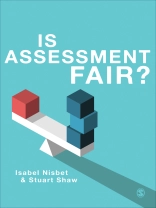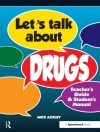Fairness in educational assessment has become a major talking point and allegations that assessments are unfair are commonplace on social media and in the press. But what does fairness mean in practice and how can we evaluate it?
This book offers a timely and necessary investigation, exploring the concept through the lenses of: measurement theory, social justice, the law and philosophy in order to put forward a template for fairness in educational assessment.
Drawing on international examples from the UK, US, Australia and South East Asia, this book offers a commentary on fairness that is highly relevant to the changing context of assessment today.
If you have a professional or academic interest in educational assessment, are a education policymakers or are just interested in working to make assessment fair, then this book is for you!
Содержание
Chapter 1: Introducing fairness
Chapter 2: Fair assessment viewed through the lenses of measurement theory
Chapter 3: Fair assessment viewed through the lenses of professional standards, guidelines and procedures
Chapter 4: Fair assessment viewed through the lenses of the law
Chapter 5: Fair assessment viewed through the lenses of philosophy
Chapter 6: Fair assessment viewed through the lenses of social justice
Chapter 7: Conclusions, challenges and a template for fairness
Об авторе
Stuart D. Shaw is particularly interested in demonstrating how educational, vocational and second language English assessments meet the demands of validity, reliability and fairness. Stuart has a wide range of publications in English second-language assessment and educational research journals. His assessment books include: Examining Writing: Research and practice in assessing second language writing (Shaw and Weir, 2007); The IELTS Writing Assessment Revision Project: Towards a revised rating scale (Shaw and Falvey, 2008); Validity in Educational and Psychological Assessment (Newton and Shaw, 2014); and Language Rich: Insights from multilingual schools (Shaw, Imam and Hughes, 2015). Stuart is a Fellow of the Association for Educational Assessment in Europe (AEA-E) and a Fellow of the Chartered Institute of Educational Assessors (CIEA).












